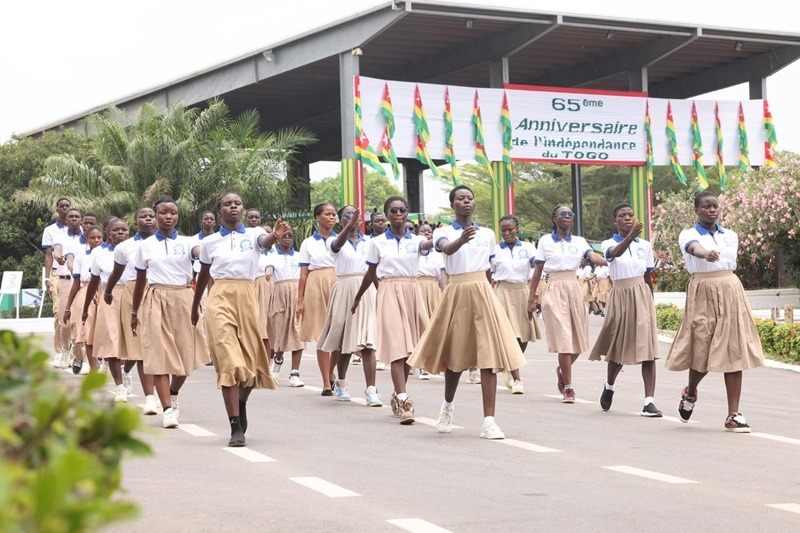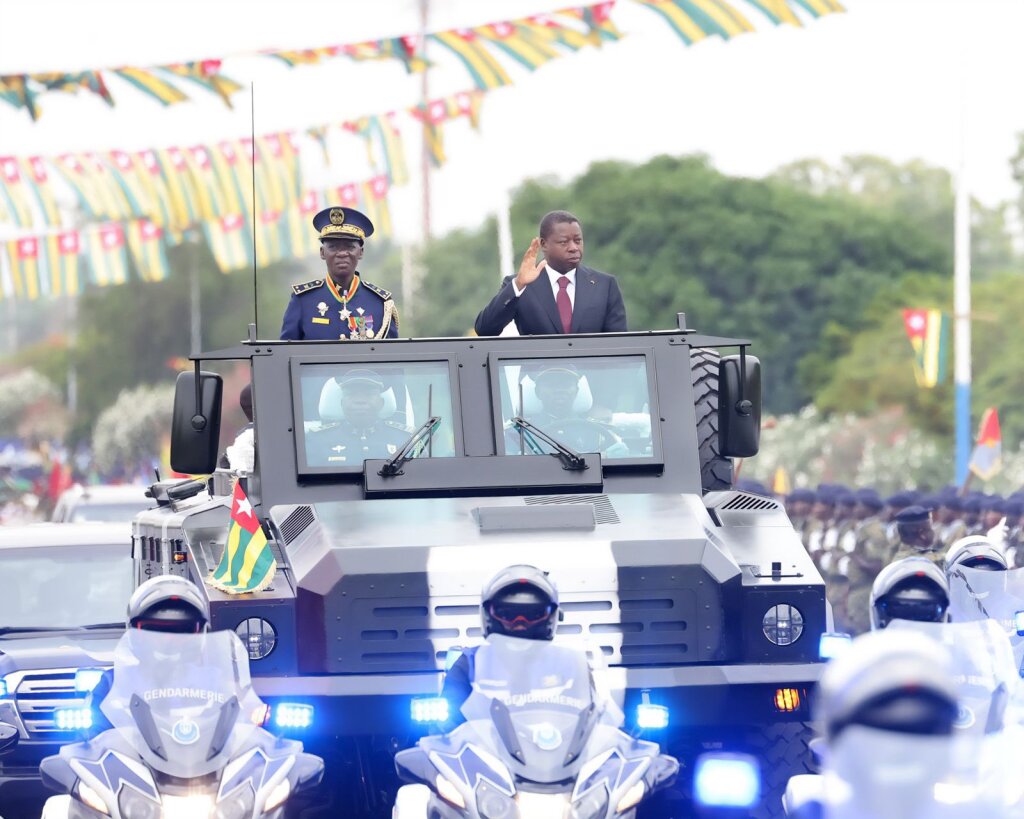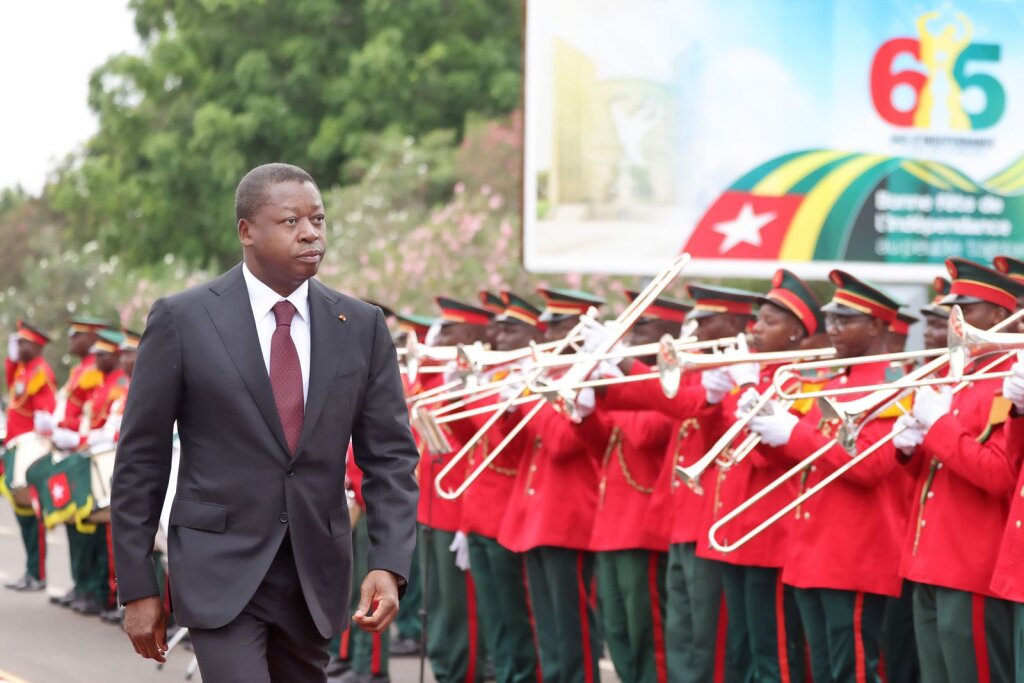Thousands gathered in Lomé on April 27, 2025, as Togo observed its 65th Independence Day with a grand event along Avenue de la Nouvelle Présidence. President Faure Essozimna Gnassingbé oversaw the impressive display of military and civilian unity.
The avenue pulsed with synchronized marches by personnel from Togo’s defense and security forces. The parade featured a range of vehicles, aircraft, and a captivating aerial show by the Togolese Air Force. Beyond the military display, organized segments of the parade showcased Togo’s diverse civil groups, students, and professionals, representing communities from across the nation.
Cultural expression thrived as traditional music filled the air. The event drew Togolese citizens from Lomé, members of the diaspora, and guests from neighboring countries. Many attendees donned traditional attire and the national colors, engaging in spontaneous dancing and lively street gatherings. Live broadcasts by national networks provided commentary and historical context for the unfolding events. Social media platforms became a space for government officials, civil society organizations, and individual citizens to share their experiences and reflections on this significant day.

Togo’s journey to independence culminated on April 27, 1960, marking its separation from French colonial rule. The nation’s colonial history began in 1884 when Germany declared Togoland a protectorate. Following World War I, the League of Nations divided the territory between Britain and France. France administered the larger eastern portion, known as French Togoland. After a 1956 referendum and growing demands for self-determination, French Togoland achieved autonomous status within the French Union in 1959 and gained full independence as a republic in 1960. Sylvanus Olympio became Togo’s first president after winning the 1961 elections.
For many Togolese, April 27 signifies both change and the enduring connection to their heritage. Throughout Togo, in both urban centers and rural communities, citizens used the occasion to reaffirm their cultural roots. Local authorities organized community initiatives such as clean-up drives, soccer tournaments, storytelling sessions, and musical performances. National radio broadcasts featured interviews with historians, former officials, and everyday individuals sharing their perspectives on Togo’s political evolution. In the lead-up to Independence Day, schools focused on educating students about the nation’s history, from the colonial era to the present.


Over the past six and a half decades, Togo has actively participated in regional and international affairs. The nation holds memberships in numerous multilateral organizations and contributes to peacekeeping efforts. Its diplomatic presence extends across Africa, Europe, Asia, and the Americas. Economic forums, trade exhibitions, and cultural events continue to highlight Togo’s active role on the African continent.
The 65th Independence Day occurred during a period of significant public discourse regarding Togo’s national development and unity. In the weeks preceding the celebration, officials publicly addressed infrastructure projects, job creation initiatives, and advancements in digital innovation. Citizens actively shared their diverse opinions and hopes through interviews, podcasts, and panel discussions facilitated by local media outlets.

As the official celebrations concluded with a vibrant fireworks display over the capital, the spirit of Independence Day continued in family gatherings, visits to ancestral villages, and shared reflections within community centers and places of worship. The memory of the nation’s independence remains deeply embedded in the hearts of its people, shaped by decades of transformation, resilience, and enduring aspirations.









